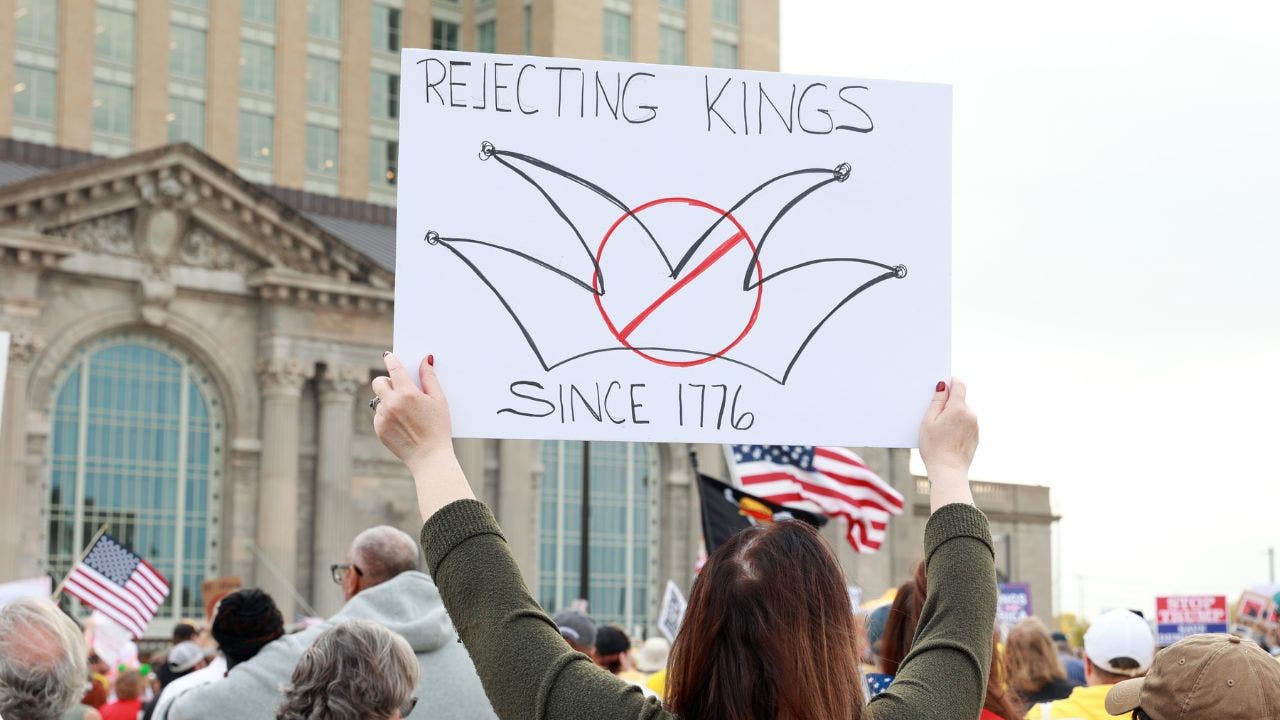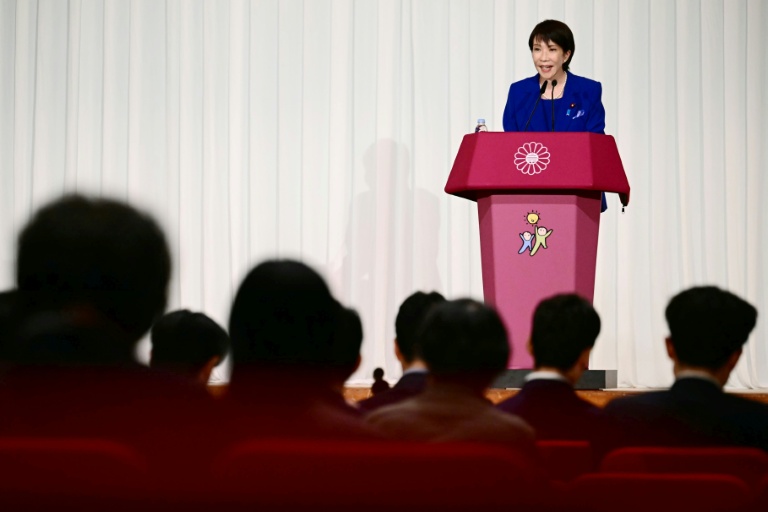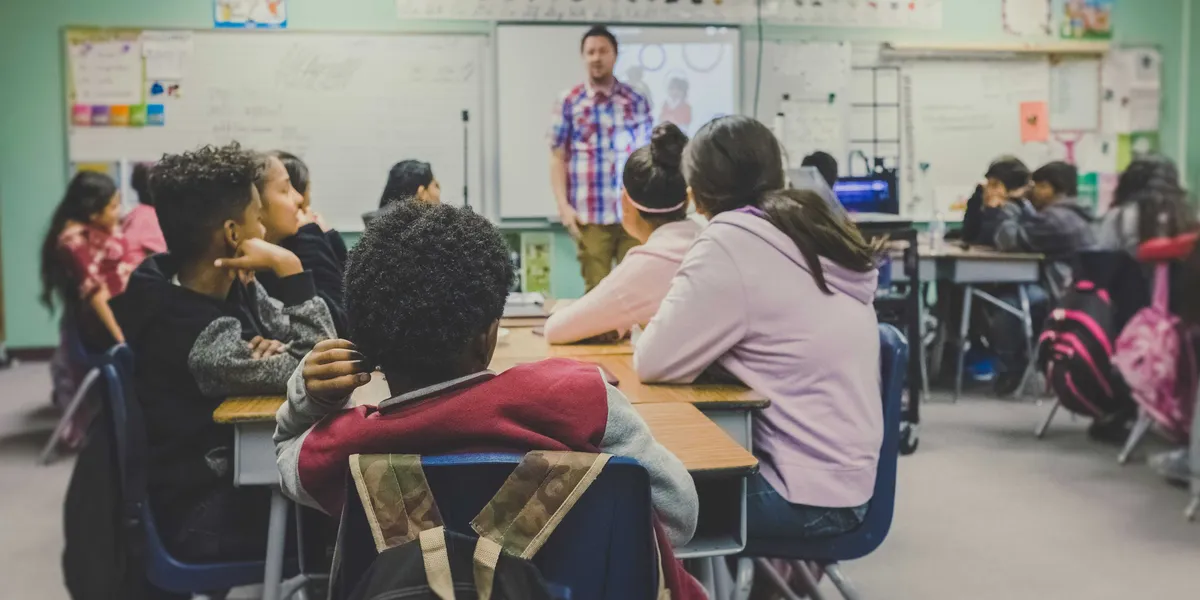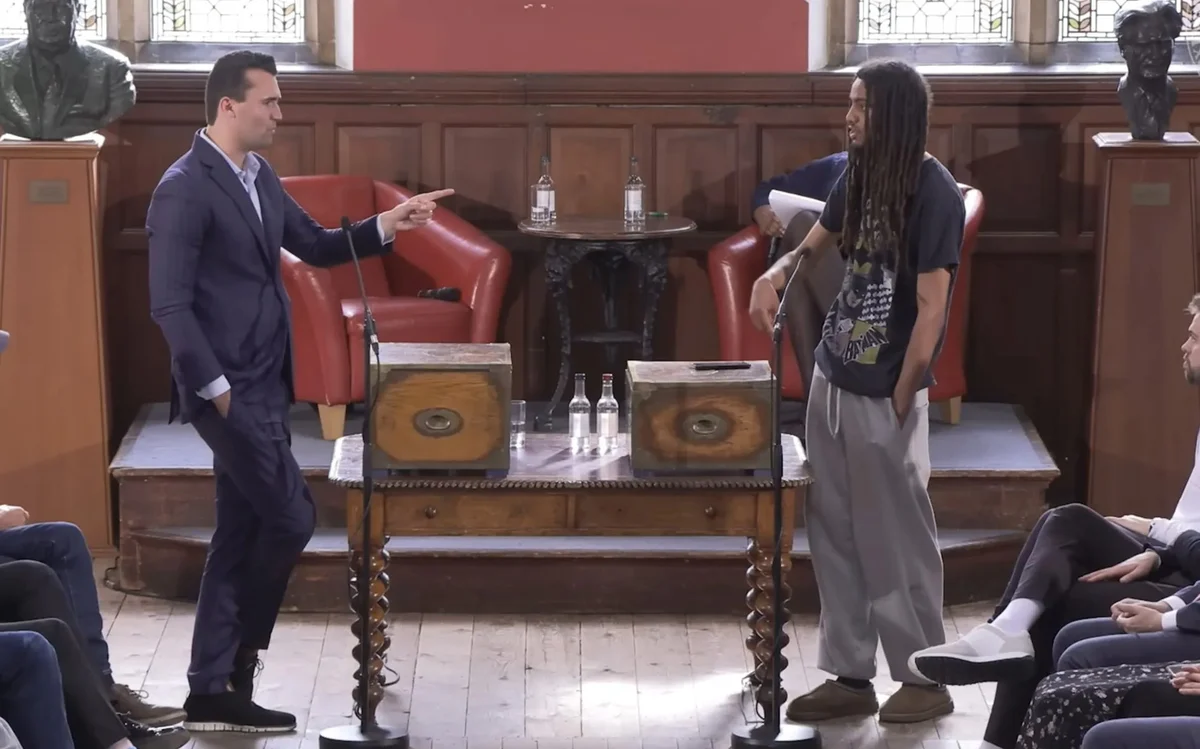Copyright Norfolk Virginian-Pilot
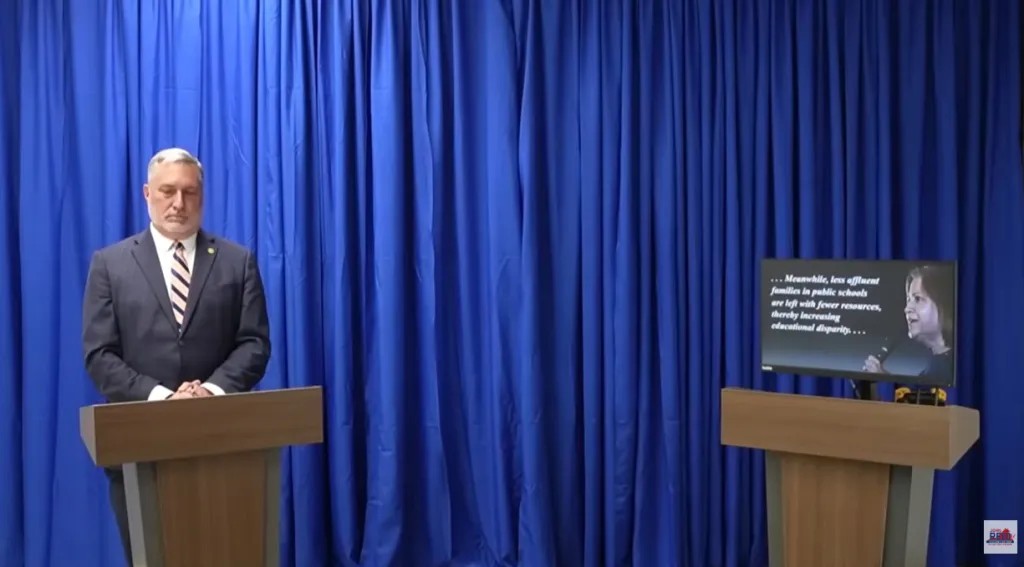
The audience, such that it was, chattered excitedly ahead of Tuesday night’s debate. It sounded almost human. “Good evening, and thanks for joining us on this unique occasion for an exchange of ideas between the two candidates running to be the next lieutenant governor of Virginia,” intoned a disembodied voice. Viewers at home watched a still image of an ostensibly humanoid rendering of a debate moderator — a white, uncannily smooth, middle-aged man wearing a jacket and tie and a vacant smile. In contrast to the moderator, a flesh and blood John Reid, the Republican candidate for lieutenant governor, stood behind a podium. Propped up on the dais next to him was a computer monitor displaying a picture of his opponent, Democratic state Sen. Ghazala Hashmi. Reid has criticized Hashmi for declining to participate in a debate ahead of November’s election. On Tuesday night, Reid held a 40-minute staged “debate” streamed on YouTube with a version of Hashmi generated by artificial intelligence. Reid responded to Hashmi’s policy positions, which were read aloud by an AI rendering of her voice. Hashmi’s “responses” were not themselves generated by AI — Reid’s campaign said they were compiled and synthesized by the Reid campaign from interviews with media, Hashmi’s website and occasionally from far-right news sources like the Gateway Pundit. Attributions for Hashmi’s policy positions flashed on screen after each question. Ava Pitruzzello, a spokesperson for the Hashmi campaign, called the debate a “failed use of deepfakes” and “a desperate move straight out of Donald Trump’s playbook.” The gimmick stood out among Virginia political campaigns this year. But experts say the presence of AI in political communication is growing. Candidates are increasingly using generative AI in political ads, and President Donald Trump regularly posts AI-generated political propaganda. “I would say that this election in 2025, and even the national political discourse in 2025, has seen a political reformation of AI,” said Cayce Myers, a professor in the School of Communication at Virginia Tech. “I think in 2026, we’re going to see a lot more of it, because the the generative AI visual side and the ability to create audio video, as well as the ability to create deep-fake content has become much better in terms of quality.” Myers said that could mean that AI in political campaigns will go mainstream in the near future. There are risks, he said. “A lot of times what you’ll see in political videos with AI is it’s intentionally kind of provocative, and then a lot of times, you’ll see ads that are made with AI that are just absurd, but they have resonance because both the people that it appeals to share them and the people that it offends share them,” Myers said. “It raises a lot of questions around, do people really understand what they’re seeing is not real? Do they understand the impact of that kind of messaging, does it polarize people?” A bill that passed through the General Assembly this year that would have prohibited use of AI in political campaign advertisements without disclosure was vetoed by Gov. Glenn Youngkin. “Ensuring transparency in political communications is a worthy objective, particularly as artificial intelligence continues to evolve,” Youngkin wrote in his veto statement. “However, this legislation imposes an impractical enforcement structure that lacks clear, workable mechanisms and raises significant constitutional and logistical concerns.” Reid was transparent about his use of AI, and the video of Hashmi did not look real. “It’s pretty shocking that this artificial intelligence debate is the opportunity for most Virginians to hear anything about the woman who is seeking to be lieutenant governor on the Democrat ticket,” Reid said in his closing statement. “While we appreciate that AI Ghazala did share her vision like her commitment to public education and reproductive rights — it’s pretty clear, Reid only cares about shoddy gimmicks and not governing,” Pitruzzello, real-life Hashmi’s spokesperson, wrote in a statement. “Maybe he should focus on voters instead of videos. And hasn’t he gotten in enough trouble online already?” Youngkin called on Reid to drop out of the race earlier this year, citing a surfaced social media account matching a username Reid uses elsewhere containing reposts of photos of naked men. Reid has maintained the account isn’t his. Meanwhile, the Democratic Party of Virginia called Reid’s debate “fake,” but nonetheless declared AI Hashmi to be the winner. “We thank John Reid for sharing Ghazala Hashmi’s vision for Virginia and congratulate her on winning this debate,” DPVA said in a statement. Kate Seltzer, 757-713-7881, kate.seltzer@virginiamedia.com
